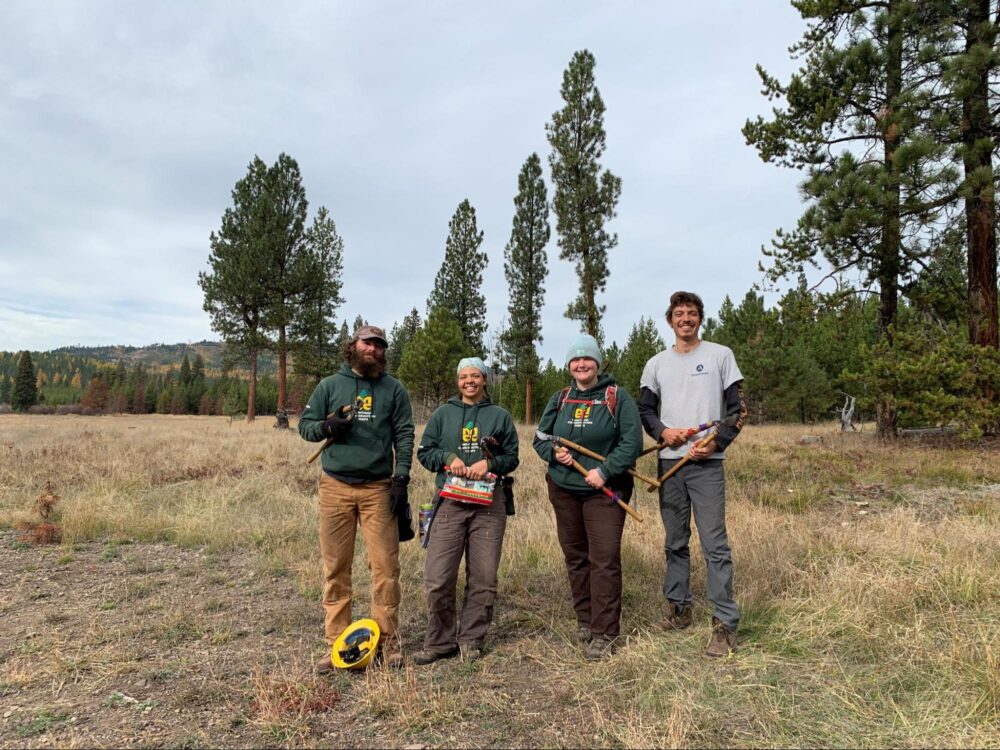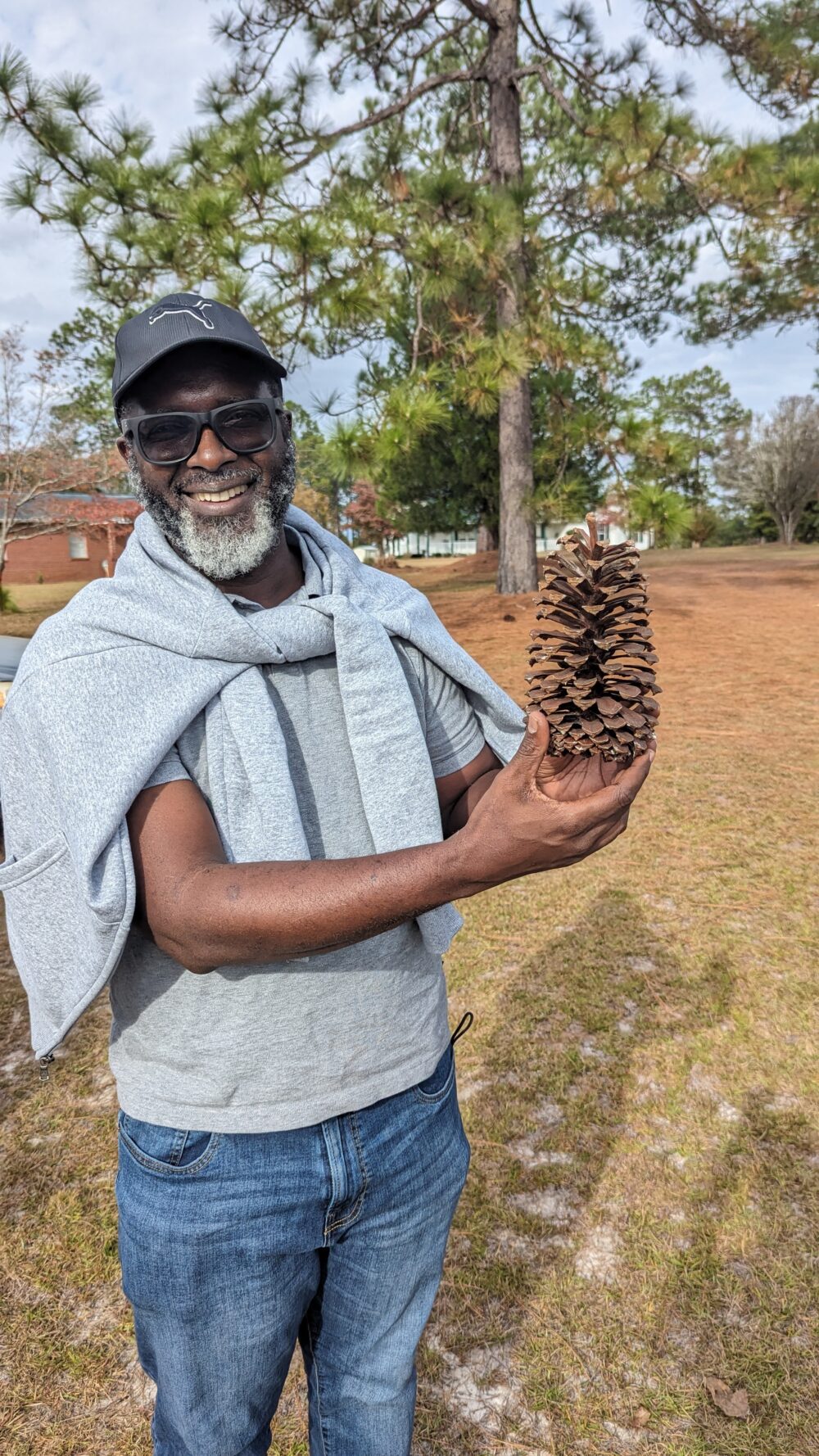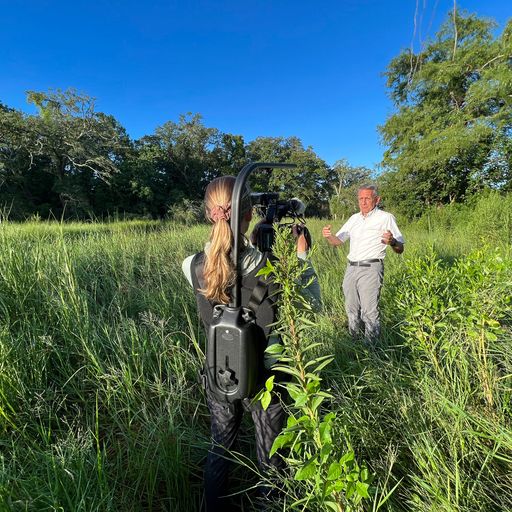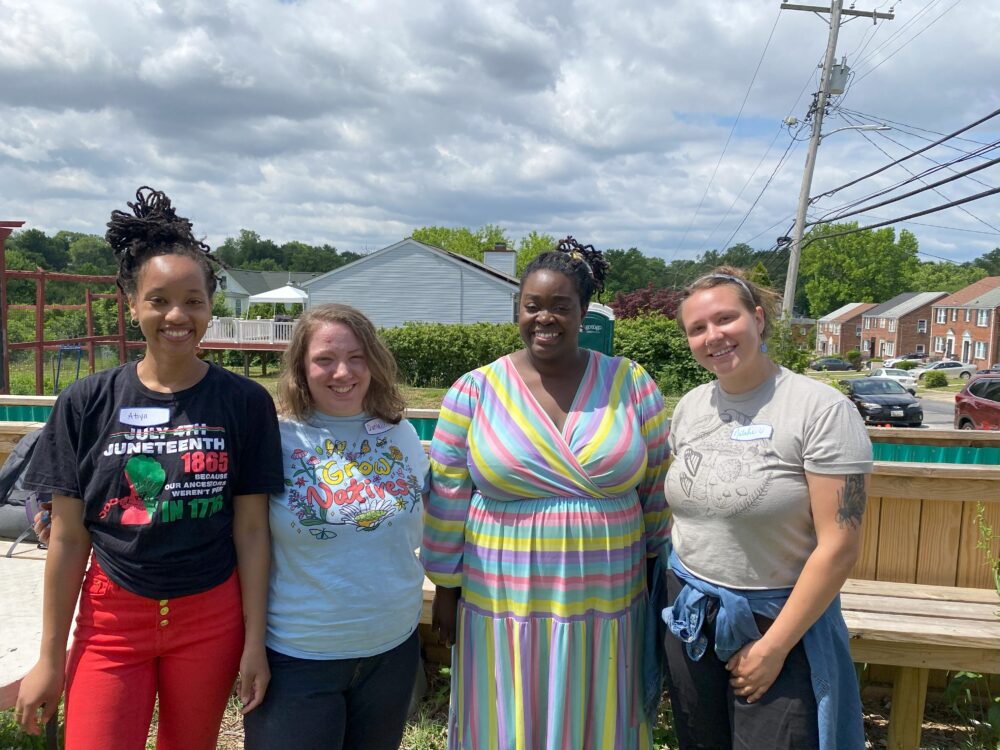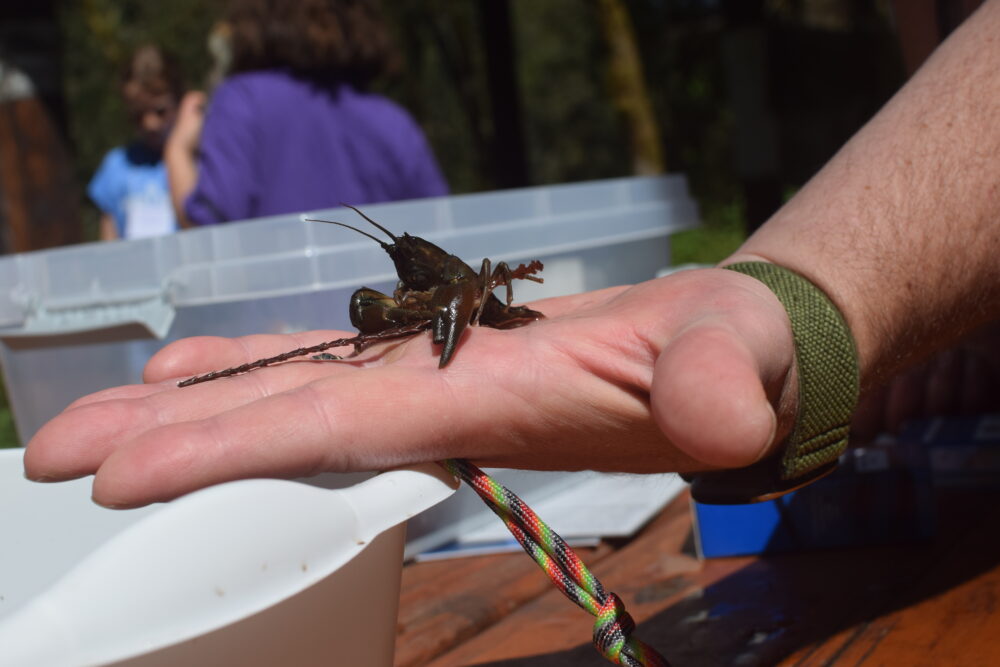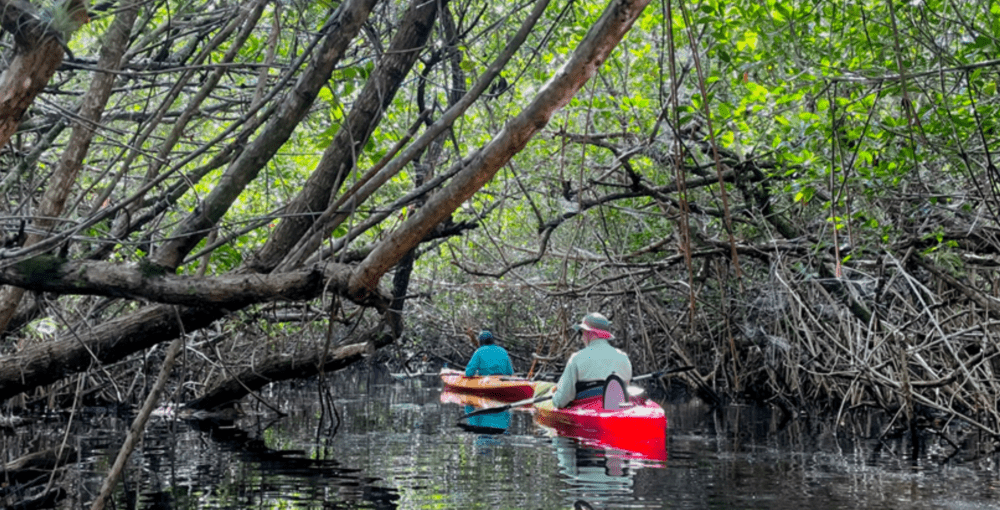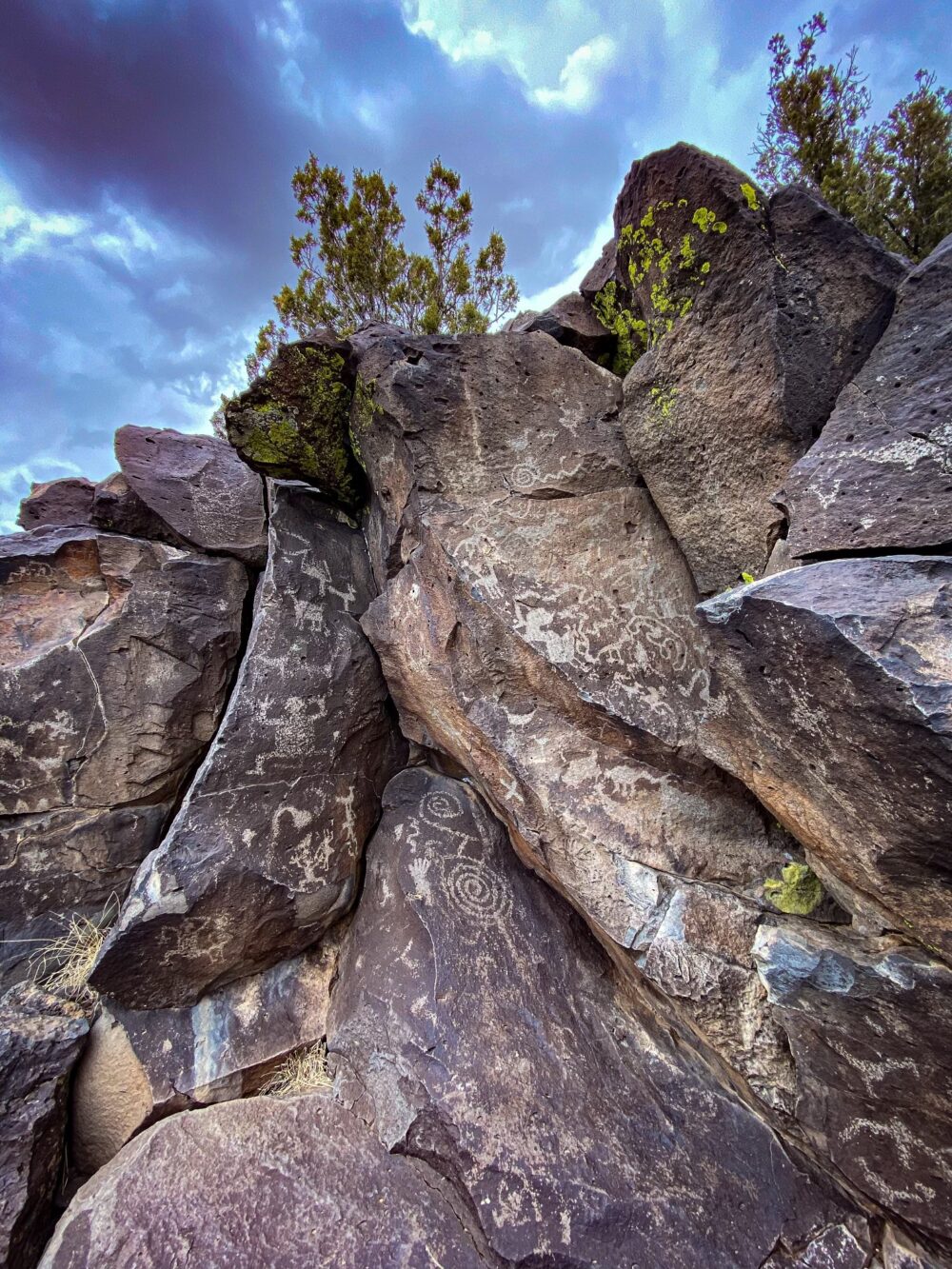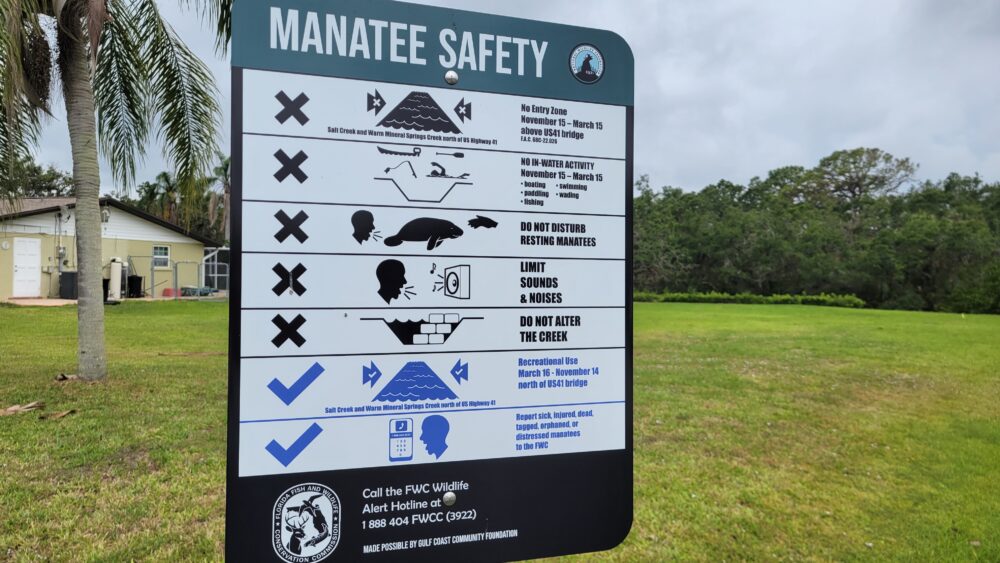We have much more to do and your continued support is needed now more than ever.
Beekeeping Offers a Connection with Nature
Watching My Grandfather
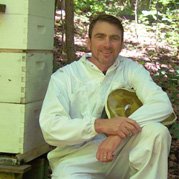
I learned some tricks from my grandfather. He told me that bees don’t like carbon dioxide. They don’t like your breath. Don’t blow a bee off you because it will sting you. Just wait for it to fly off. It’s probably taking a rest.
The way you move around the hives is important. You have to be calm and relaxed. You have to move slowly and the bees will pretty much ignore you. If you make jittery movements, that excites them.
He taught me how to extract honey. He used an old fashioned hand-crank extractor that you put your frames in a barrel device and you crank a handle and it spins the frames really fast. This gets the honey out without destroying the comb. He told me that the comb is really the gold for the beekeeper. It’s not so much the honey. Once they go through the work of making the comb, it’s easy for them to pack it full of honey. They’ll just re-use it year after year until it degrades.
Becoming a Beekeeper Myself
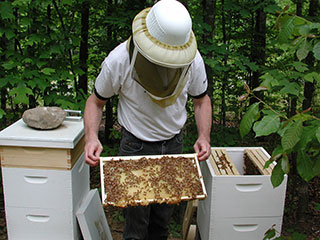
I have some beekeeping innovations that my grandfather didn’t have. I have an electric comb de-capper. He used a knife that he put in hot water to heat it up. He could only do an inch or two. I have an electric one that stays the right temperature.
I have a hand-crank extractor except mine is made of plastic and made in China. He probably built his own or bought it at a farm store. I use a bee suit.
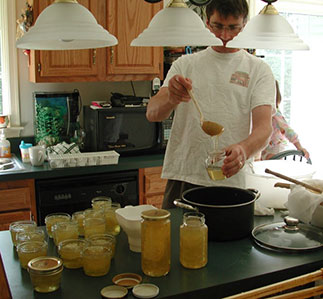
My First Year Beekeeping
It started with me picking up my bees at the post office in boxes. I very gingerly put them in the back of my car and drove them home as they buzzed.
I had spent weeks beforehand building the boxes and putting the frames in and finding a nice spot in my yard to set it up. I had all my tools ready and I felt prepared.
But it was amazing to take the bees and pour them into their hive. They pour in, sort of like water. They immediately get to work cleaning. They immediately go hunting for nectar. They don’t waste any time.
The first year I had a hive we had the best crop I ever had all the years I have been doing it. I’m not sure why. It was just good conditions for the bees. I got close to 50 pounds of honey that first year, so I always expected that to be the case every year. I got closer to 20 pounds in other years. Some years I lost the bees due to disease or bears.
What Has Beekeeping Taught Me?
The biggest thing is that bees and probably all wildlife, they do their best work when humans don’t try to help them. If I just observe them and leave them alone, they are wonderful and they are great producers and they are happy. When I start tinkering – the more I tinker, the less productive they are. It’s probably true for all nature. Give it its distance and let nature be nature.
You can open the hive up and you can pull frames out to make sure the queens laying eggs properly and see how many frames are being filled with honey. It’s important to do that sometimes because you want to make sure you have a healthy queen, but the bees really don’t like it when you go into their hive. You can use smoke to calm them down but the end effect is that it stresses them out. I would check the hives once every three weeks. I would alternate hives and not do them at the same time so they are not stressed out at once.
Every day I would sit and just watch the bees doing their thing and observe. You can learn a lot about them by just sitting outside their hive and watching what they are doing. You can tell if there is a good nectar crop somewhere near because you can see them all flying off in one direction to get nectar. You can tell if there are some ants are going inside the hive because they will have extra bees around the entrance guarding the entrance. You just get a sense from watching them, what their general mood is – whether they are happy and productive, or feeling down due to drought or disease.
Becoming an Advocate for the Bees
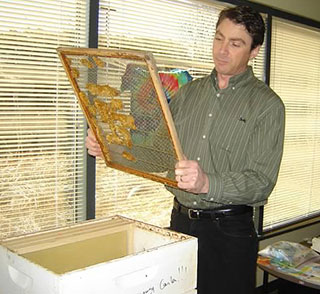
Everyone that I have introduced this concept to has been interested. I think if more people knew about it, more people would appreciate beekeeping and maybe even take it up as a hobby.
Bees have this reputation because they sting. That’s all people know about them. They don’t know the benefits. I try to educate my neighbors and my friends about the amazing benefits that bees bring to the neighborhood. They benefit all the neighbors for miles around with pollinating.
I also share the honey with all my neighbors so they see that benefit. They will go for nectar and water wherever they can find it – so they will go in neighbor’s pools or if a neighbor has a hummingbird feeder, and the bees can’t find any better nectar, they will go find hummingbird juice.
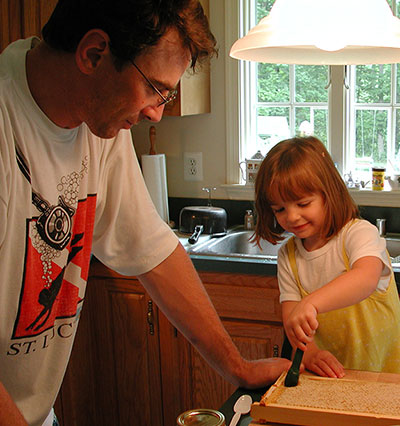
Beekeeping with my Daughters
My kids have always been really fascinated by the bees. They have always enjoyed helping especially when it is time to get the honey out of the comb and put it in bottles and give it to family and friends.
Last year I got a bee suit for Audrey for her birthday. I haven’t had bees since but some day we will use it.
My kids ask lots of questions. They come out and watch the bees with me and we talk about what they are doing and why they are doing it.
It’s a great way to observe nature because they are so active and busy. It’s just fascinating to watch nature in action right in front of your eyes. It’s not like watching a tree growing – you can see nature in real time.
Ode to a Beekeeper
A few years ago, my colleague Carla Brown wrote this poem about my beekeeping hobby for my birthday, and I thought I would share it here:
The beekeeper, the craftsman,
Knows silence as a dear friend,
Knows fear causes all sorts of creatures
To do things they don’t mean to do.
Seeing his grandfather’s hands
As he looks down at his own,
He sets the hive in a spot
That gets shade and sun in turn.
Through the seasons, the beekeeper
Stands by, holding watch
Though requirements may change
His attentions never waver.
The honey is an afterthought
Truly it is the living he seeks
Moving slowly as he approaches the hive
Knowing his stillness brings peace.
For what moves a man to continue
On this tiny place in this sun-dappled spot?
Love is too strong a word.
Constancy is love, but without drama.
Winter can be long and he has lost before
He weighs the merits of intervention.
Will nature be kind this year
Or will he step in?
The beekeeper, the balancer,
Knows time passes as a puff of smoke,
Does his best, now, today,
And we thank him for it.











